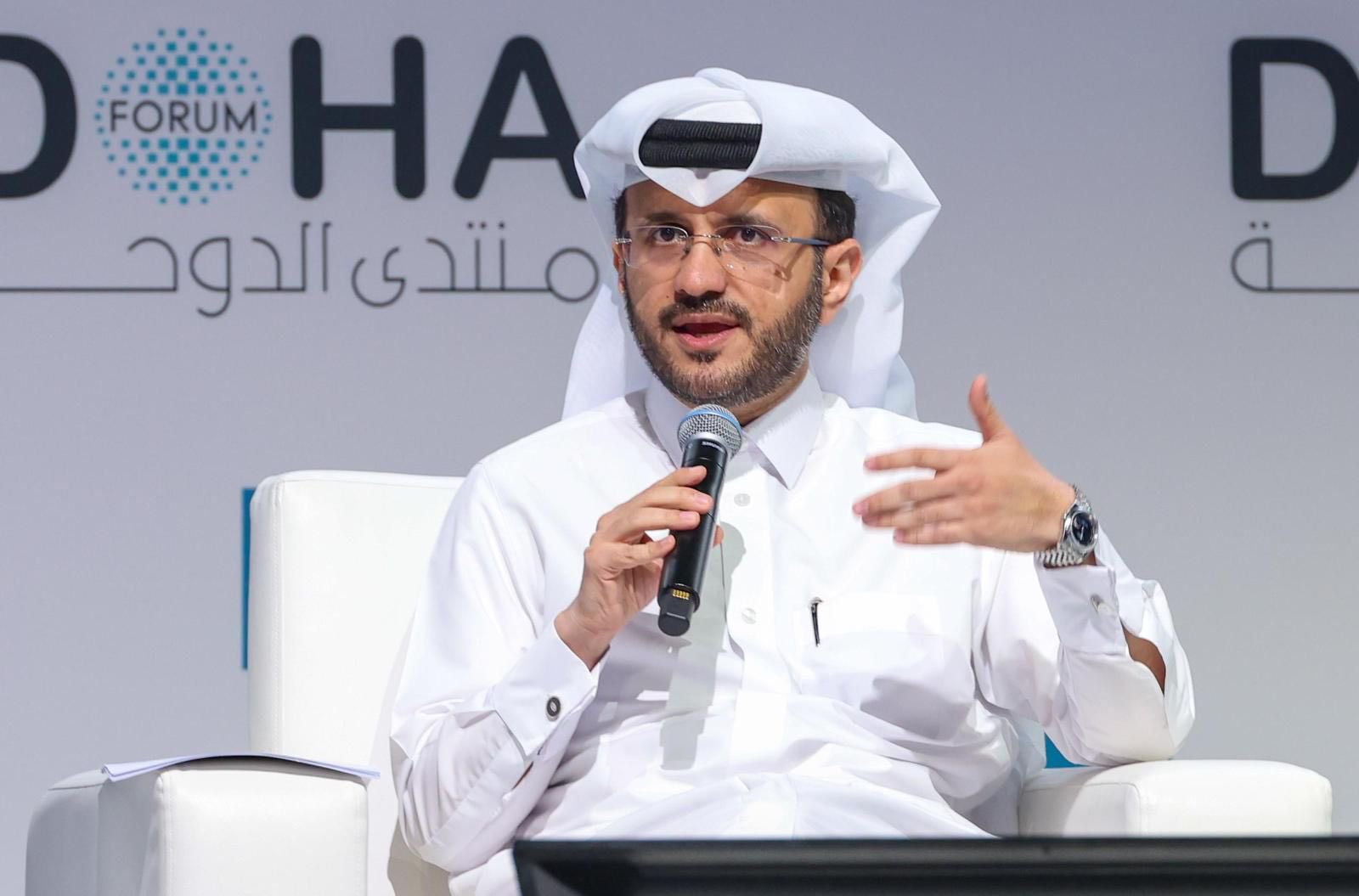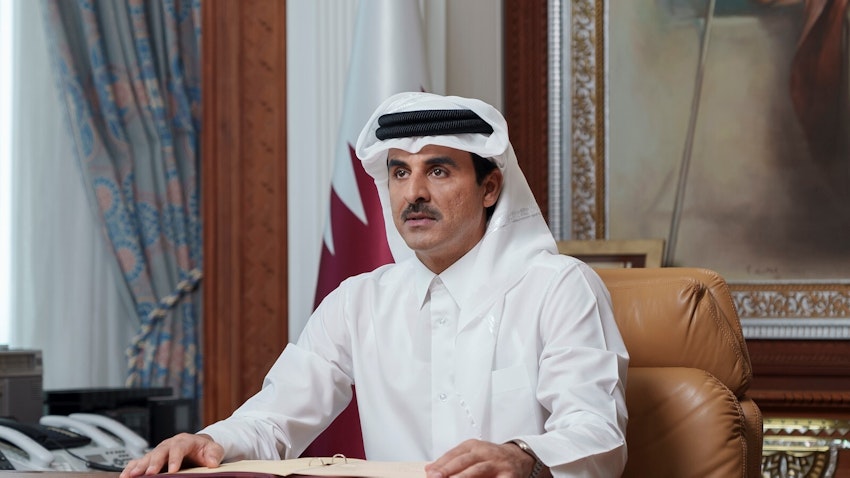At the Doha Forum 2024, Majed bin Mohammed Al Ansari highlighted Qatar’s support for the Syrian opposition’s advancements and called for renewed international commitment to achieving a sustainable ceasefire in Gaza, emphasizing the need for political will to end the bloodshed.
Qatar has expressed support for developments in Syria and Gaza as Bashar al-Assad’s regime fell after the Syrian opposition groups seized key government-held territories in the country, and Gaza continues to face genocide by Israel.
“The sacrifices made by the Syrian people over more than a decade deserve international recognition and support for their national project,” Majed bin Mohammed Al Ansari, Advisor to the Prime Minister and Official Spokesperson for the Ministry of Foreign Affairs, said during a panel discussion at the Doha Forum 2024 titled ‘The Future of US Strategy in the Middle East Following the 2024 Election’ on Monday.
Al Ansari praised the Syrian opposition for recent measures aimed at civilian safety, institutional stability, and continuity of public services.
He described these actions as a potential turning point toward achieving freedom, justice, and peace for the Syrian people.
In addition to addressing the Syrian situation, Al Ansari urged adherence to international humanitarian law and the promotion of a peaceful political transition that could bolster regional stability.
He reaffirmed Qatar’s commitment to working with Arab and international partners to support Syria’s journey toward a stable and secure future.
Rebel forces entered Damascus on Saturday, marking their first return to the capital since 2018.
The rapid advance culminated in the capture of key facilities, including the international airport and state TV headquarters, without resistance. Reports indicate government forces withdrew, allowing a smooth rebel takeover.
Meanwhile, ousted Syrian President Bashar al-Assad fled to Moscow alongside his family, Russia’s state media reported.
Russian state media confirmed their arriva, quoting a Kremlin source who stated that Assad was granted asylum “on humanitarian grounds”.
“Russia granted them asylum on humanitarian grounds,” reported by Russian state media.
Assad’s departure followed his resignation and instructions for a peaceful transfer of power, according to the Russian Foreign Ministry.
Russia, a longtime ally of Assad, had provided military support during Syria’s civil war, including a nine-year air campaign that killed thousands of civilians, according to the Syrian Observatory for Human Rights (SOHR).
“Russian officials are in contact with representatives of the armed Syrian opposition, whose leaders have guaranteed the safety of Russian military bases and diplomatic institutions on the territory of Syria,” TASS reported, citing a Kremlin source.
According to a senior Russian official attached to the UN posted on Telegram Sunday, Moscow has also called for an urgent United Nations Security Council meeting to address the evolving situation, citing the far-reaching consequences for Syria and the region.
The fall of Assad’s regime marks a turning point in Syria’s 13-year-long conflict. While the opposition has gained control of Damascus, some observers feel that the future of the nation remains uncertain, even as international stakeholders closely monitor the developments.
Qatar’s mediation efforts in Gaza
During the same panel, Al Ansari discussed the situation in Gaza and Qatar’s mediation efforts.
He highlighted that despite reaching an acceptable ceasefire formula, political exploitation of the agreement led Qatar to pause its role as mediator.
“Qatar does not wish to be used as a tool in the conflict,” he explained, adding that it continues to evaluate its mediation strategy while emphasising the need for international pressure on conflicting parties.
Al Ansari also expressed optimism about the incoming US administration under President-elect Donald Trump, calling for enhanced cooperation to resolve regional challenges.
“Dialogue and constructive discussions between the United States and regional countries are essential for achieving global peace and stability,” he said.
He underlined the broader consequences of the wars, particularly the ongoing humanitarian crisis in Gaza, where the international community has yet to provide adequate solutions.
He stressed that the continuation of wars affects the future generations, adding trust in governments and the international community is already diminishing when talking about the killing of 50,000 people in the Gaza Strip to date in view of the state of paralysis experienced by the international community which stands helpless in dealing with this matter until now.
“It may be impossible to reach an agreement on all the details of how to deal with the Palestinian issue or any other issue, but we must all agree to stop the bloodshed immediately” he said.
Panel participants, including regional experts and diplomats, commended Qatar’s efforts in mediation and conflict resolution.
They highlighted the devastating toll of the Israel-Hamas war, emphasizing the urgency of U.S. intervention to promote peace.
Participants called for a unified strategy to address Middle Eastern challenges and foster dialogue to prevent further escalation.







